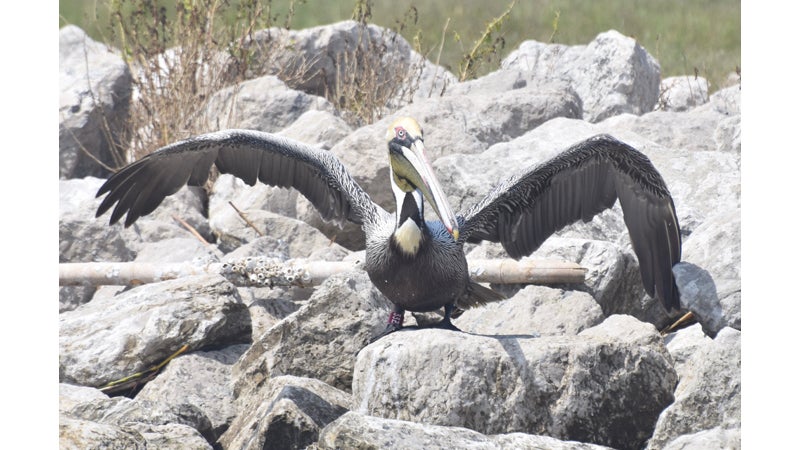The comments came before the Coastal Protection and Restoration Authority Board’s meeting in Baton Rouge.
Todd Baker and Casey Wright from the CPRA along with Barret Fortier from the U.S. Fish and Wildlife Service briefed the commission on the three coastal islands, Queen Bess Island in southern Barataria Bay in Jefferson Parish, North Breton Island in Plaquemines Parish and Rabbit Island in the West Cove of Calcasieu Lake in Cameron Parish.
Queen Bess Island, Baker said, had declined to only five acres of pelican nesting habitat before the CPRA had constructed barriers of rip-rap rock to protect the island from erosion and used dredges to fill in 150,000 cubic yards of Mississippi River sand in 2020.
The project was funded with an $18.7 million grant from the 2010 BP oil spill settlement, known as the Louisiana Trustee Implementation Group.
According to Banks, the number of birds nesting on the island grew from 10,723 (with 6,810 of those being brown pelicans) to 14,939 (3,425 pelicans) in 2021. He also said while they expect the numbers of wading birds and terns and skimmers to decrease due to the reduction of open-water habitat on the island, the numbers of pelicans (4,000) and laughing gulls (2,000) will increase, something that he said has already happened on the island.
On Rabbit Island, the 2021 $16.4 million project had 606,300 cubic yards of sediment pumped onto Rabbit Island from the Calcasieu River.
The result was the number of nesting pelicans grew on the island from 1,264 in 2018 to 4,043 in 2022.
On North Breton Island in 2020, the CPRA dredged 8.2 million cubic yards of sand, silt, and clay sized material to rebuild its landmass eroded by several hurricanes.
Pelican numbers rebounded on North Breton from 4,301 in 2021 the year after the project’s completion to 5,847 in 2022. Banks said a May survey this year showed about 5,600 nests.
According to data presented to the commission, the CPRA has 109 active projects, with 41 of those under construction, 65 in the engineering and design phase and three in the planning phase.
The next scheduled meeting for the CPRA is August 16.






